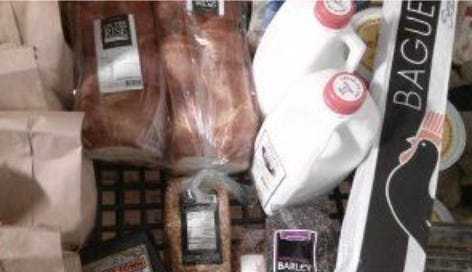Iowa’s FHMWG Archives: "Local Foods Program supports food hubs across Iowa" (Aug. 2017)
Iowa State University FFED Team originally posted this blog and it is now archived here to preserve the history and evolution of Iowa’s Food Hub Manager’s Working Group (FHMWG).
Local Foods Program supports food hubs across Iowa
August 22, 2017
by Teresa Wiemerslage, Food Systems Coordinator
This piece was originally written by Teresa Wiemerslage in 2017 and published on ISU’s FFED blog, which is no longer live. We’re grateful to ISU for creating this content in the past and proud to archive it here, ensuring the stories of Iowa’s food hubs—and the people behind them—is not lost.
Local and regional food systems development can be a tool to help solve some of the nation’s most pressing challenges, including economic and community development, obesity prevention, family farm preservation, food security and environmental protection.
Evidence suggests that a growing number of consumers want access to locally produced food. However, local foods can be difficult for many people to access, because most are sold directly from the farmer to the consumer, rather than at the places where a majority of people get their food (restaurants, grocery stores, school cafeterias, etc.)
As food hubs attempt to balance supply and demand while carrying many seasonal and niche products, they often need support to grow and thrive. They face many challenges, including price sensitivity, managing growth, accessing capital, navigating food safety requirements, acquiring and retaining qualified staff and building or accessing infrastructure.
With ISU Extension partners working with food hubs across the state, the Local Foods Program team is well-positioned to provide expertise and technical assistance to the growing number of emerging food hubs in Iowa, to help them overcome these challenges.
The Leopold Center for Sustainable Agriculture commissioned the first coordinated study of food hub development in Iowa. Two surveys of food hub managers and local food coordinators conducted in 2014 identified 31 food hubs or centers of food hub-related activity that serve Iowa markets. Work was funded by a grant from Ag Ventures Alliance and the USDA’s Sustainable Agriculture Research and Education program.
After the release of the food hub study, the food hub managers agreed that continued networking would be beneficial, and the Iowa Food Hub Managers Working Group was formed. This community of practice began in the summer of 2015 and meets quarterly to address operating challenges and needs of food hub businesses in Iowa.
Together, group members are exploring how they can work together to improve their technical knowledge of aggregation and distribution systems, source more local products, leverage funding, build partnerships and grow opportunities for farmers. Seven hubs regularly attend, including the Iowa Food Hub which serves northeast Iowa.
Iowa Food Hub serves farmers and customers within 150 miles of West Union. The hub is sponsored by a non-profit organization which helps the hub focus on projects to build the food system like a beginning farmer network, farm to school outreach and a community food box program.
Development of the working group has led to new partnerships among hubs. Iowa Food Hub, WW Homestead Dairy, Country View Dairy and other farms and hubs coordinated their trucking routes so that they could cross-dock at one anothers’ locations and haul product for one another. This has reduced redundancy and increased efficiency. For example, cross-hauling has prevented some trucks from returning home empty (which is very inefficient) and has allowed some trucks to shorten their routes.
In another project, two food hubs are partnering to expand the GroupGAP food safety model to more farmers.
The partnerships with ISU Extension has also led to several new publications to assist with food hub growth and development including start-up business models, marketing to schools and financial management of hubs.







